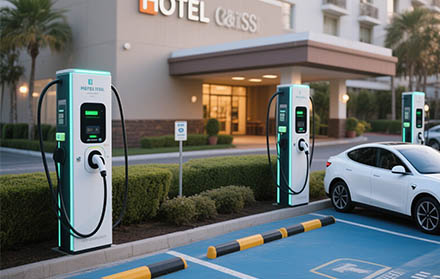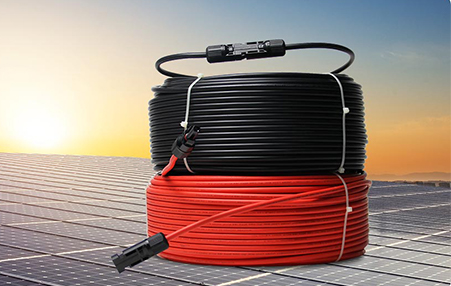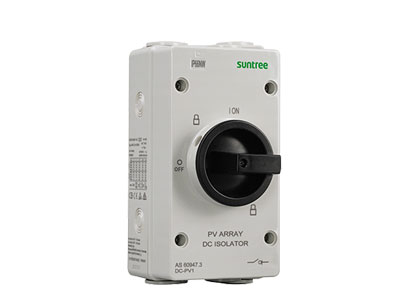How Much Does a Commercial EV Charging Station Cost?
The rapid growth of electric vehicles (EVs) has made commercial EV charging stations a critical investment for businesses, hotels, and public facilities. Whether you’re a hotel owner aiming to attract eco-conscious guests or a commercial property manager preparing for the future of transportation, understanding the costs and options for EV charging infrastructure is essential. This article breaks down the expenses, explores types of EV chargers, and highlights key considerations for deploying EV charging stations for hotels and other businesses.
Understanding the Costs of a Commercial EV Charging Station

The total cost of installing a commercial EV charging station depends on several factors:
1. Hardware Costs
· Level 2 AC EV Chargers: The most common choice for businesses, Level 2 chargers (240V) offer faster charging than standard outlets, delivering 10–60 miles of range per hour. Prices range from 2,000to2,000to7,000 per unit, depending on features like power output (7 kW to 22 kW) and smart capabilities.
· DC Fast Chargers (DCFC): Ideal for high-traffic areas, these chargers provide 60–100 miles of range in 20 minutes. However, they are significantly pricier, costing 50,000to50,000to150,000+ per unit, including installation.
2. Installation Expenses
Electrical upgrades, permits, and labor can add 3,000to3,000to30,000+ per station. Factors like site preparation, distance from power sources, and local regulations heavily influence these costs. For EV charging stations for hotels, installation may require trenching, panel upgrades, or load management systems to balance energy use.
3. Software and Networking
Smart EV charging stations often include cloud-based software for monitoring, billing, and access control. Subscription fees range from 50to50to300/month per port.
4. Ongoing Maintenance
Annual maintenance, including software updates and hardware checks, typically costs 500–500–2,000 per station.
Types of EV Chargers: Which One Fits Your Business?
Choosing the right charger depends on your customers’ needs and dwell time:
-
Level 1 Chargers (120V): Rarely used commercially due to slow speeds (3–5 miles of range per hour).
-
Level 2 AC EV Chargers: Perfect for locations where users stay 1–4 hours, such as hotels, offices, or shopping centers. Brands like ChargePoint and Enel X offer scalable solutions.
-
DC Fast Chargers: Best for highway rest stops, gas stations, or fleet depots where rapid charging is critical.
For EV charging stations for hotels, Level 2 chargers strike a balance between cost and performance, as guests often park overnight. Pairing them with smart charging solutions like dynamic load balancing can optimize energy use during peak hours.
Key Considerations for Commercial EV Charging Stations
Scalability: Plan for future EV adoption rates. Modular systems allow adding ports as demand grows.
Government Incentives: Programs like the U.S. Federal Tax Credit (up to 30% of costs) or local grants can reduce upfront expenses.
ROI Opportunities: Monetize chargers via user fees, increased foot traffic, or branding partnerships. Hotels often bundle charging as a premium amenity.
Charging Station Manufacturers: Research reputable brands like Tesla, ABB, or Siemens for reliability and warranty support.
Why Hotels Should Prioritize EV Charging Stations
Installing EV charging stations for hotels isn’t just about sustainability—it’s a competitive edge. A 2023 survey found that 40% of EV drivers prefer hotels with charging ports. By offering Level 2 AC EV chargers, hotels enhance guest satisfaction, earn green certifications, and tap into a growing market of EV travelers.
Final Thoughts
The cost of a commercial EV charging station varies widely, but the long-term benefits—customer loyalty, revenue streams, and future-proofing—are undeniable. Whether you opt for a Level 2 AC EV charger or a high-speed DC system, aligning your investment with user behavior and infrastructure needs will ensure maximum ROI.
As EV adoption rates soar, now is the time to build a charging infrastructure that positions your business as a leader in the electric mobility revolution.








